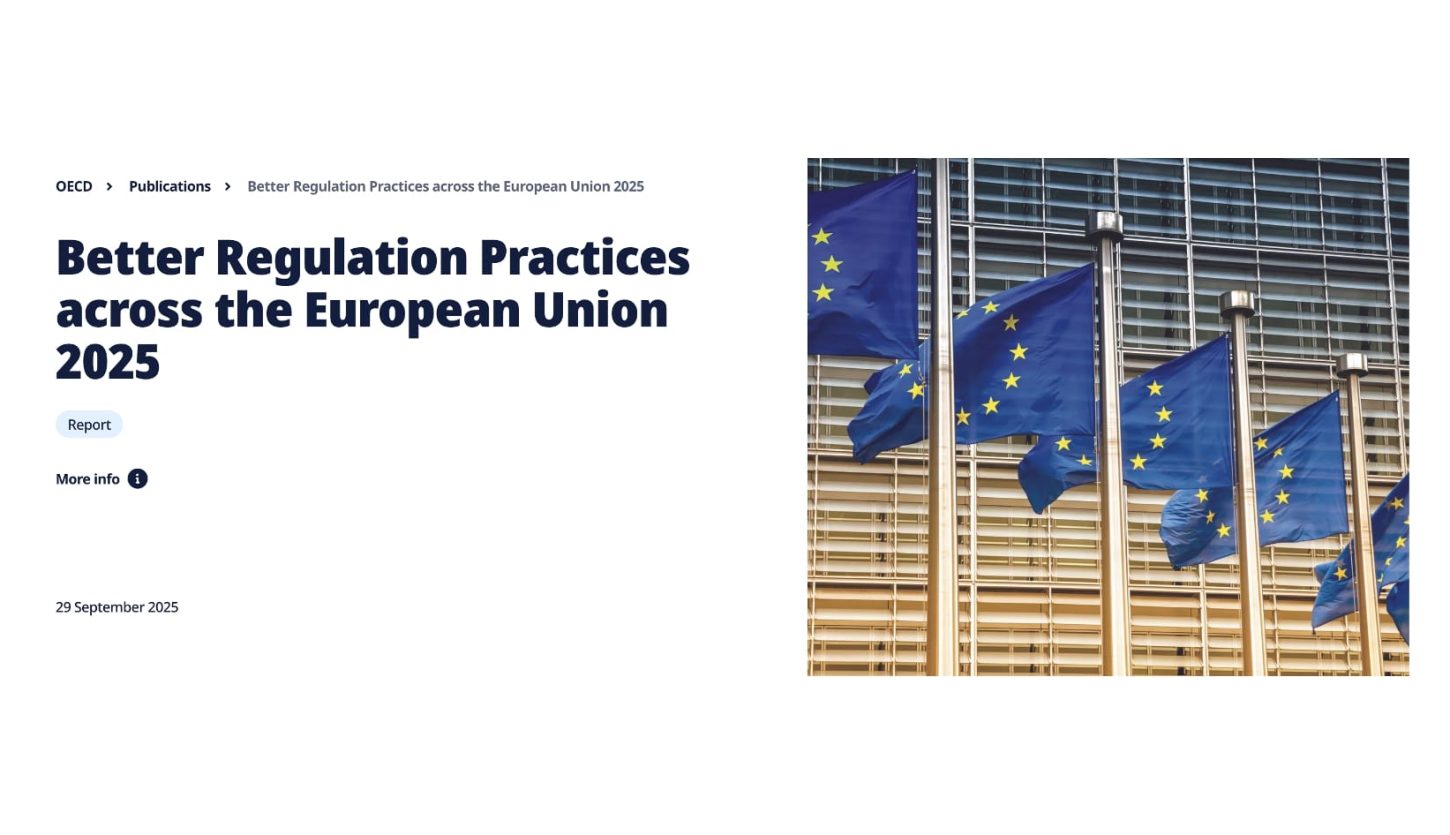While many countries across the OECD are seeking to bolster competitiveness and productivity by simplifying regulations and cutting so-called “red tape”, TUAC warns against the risks of a new wave of outright deregulation which will lower protections for workers, increase inequality and undermine climate action. TUAC urges OECD governments to broaden their regulatory approaches following the release of the OECD’s latest Better Regulation Practices across the European Union 2025. TUAC welcomes the report’s recognition that decision-making requires a holistic evidence base that includes social and environmental impacts alongside business and economic ones.
The OECD review exposes major gaps in impact assessment. Across the EU Member States it examined, only 10 systematically test proposals against domestic or international decarbonisation targets. Around half assess effects on poverty and inequality – with sluggish progress since 2017. The situation is even worse for subordinate regulations, where fewer than one-third of countries run these checks, leaving evidence gaps in the day-to-day rules that affect people most.
TUAC highlights the report’s troubling admission that “policymakers place greater emphasis on requiring quantification of costs than benefits,” and challenges administrations to correct this imbalance, which threatens to undermine equitable policy development across the EU Member States.
“Previous waves of deregulation have shown us that, if not designed properly, simplification initiatives mainly serve the short-term economic interest of the few and widen inequality. Governments must make sure that the protection of public interests remains at the heart of regulatory policies and that social and environmental safeguards are fully integrated.”
Trade unions urge policymakers to embed distributional analysis and job-quality metrics within regulatory impact assessments for the green and digital transitions, with one in four jobs exposed to automation across OECD countries. Despite this scale of disruption, the review does not substantively address job losses, working conditions or job quality.
TUAC also regrets the omission of the key concept of “just transition”, as enshrined in the Paris Agreement and defined under the ILO Guidelines of 2015, and despite established initiatives such as the EU Just Transition Fund; without a clear framework, regulatory choices risk overlooking employment and skills dimensions and producing unequal outcomes, thereby limiting public support for climate policies.
Finally, TUAC challenges the governance framing: the chapter foregrounds “civic space” and CSOs while failing to recognise trade unions as a system-level pillar of better regulation; references are confined to scattered country examples rather than the core guidance.
Moving forward, TUAC calls on governments to hard-wire parity in regulatory impact assessments so that benefits carry equal weight to cost tallies, and to mandate systematic checks for poverty, inequality and decarbonisation across primary and subordinate rules with consistent templates and quality control. Trade unions further urge oversight bodies to reject proposals that sidestep social or environmental evidence and to formalise structured engagement with trade unions at design, transposition and ex-post review stages.
Image credit: OECD

